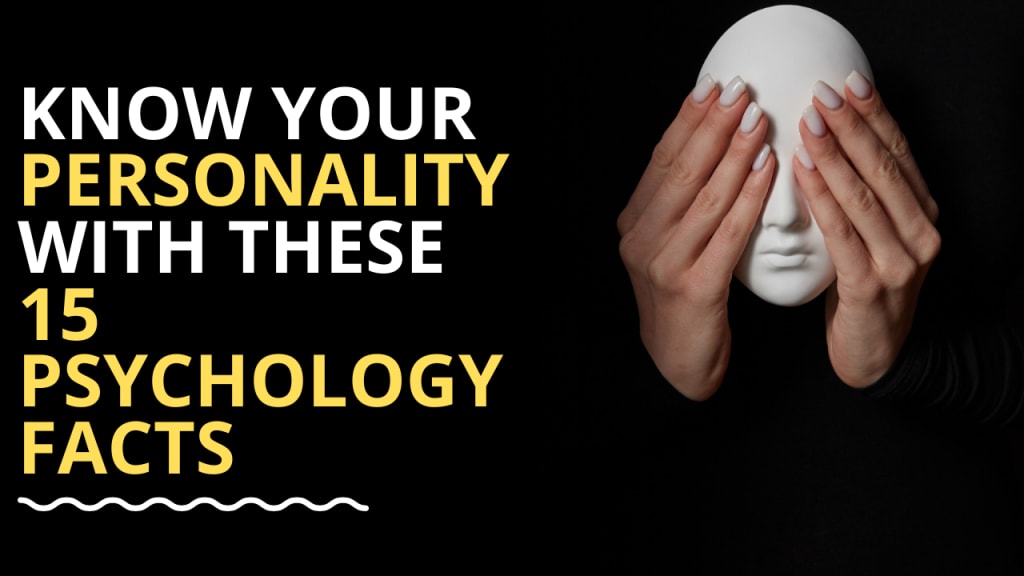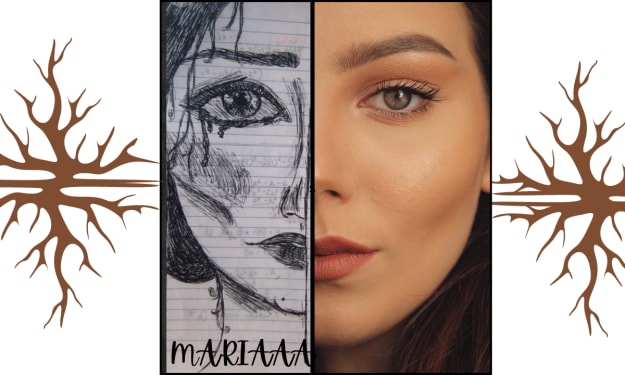15 Human Psychological Facts
Know your personality with these factors.

Psychology is fascinating because it applies to every aspect of our lives. It influences our relationships, choices, and actions. It's in the hug of a loved one, the power of advertising, and our resilience in tough times. Psychology is more than just a subject; it's a journey of self-discovery. It helps us understand others and ourselves deeply. Let's explore 15 interesting psychological facts about human behavior together.
1. Mirroring Mirage
Mirroring Mirage is when you copy someone without realizing it. Like if your friend touches their hair and suddenly you do the same. Our brains automatically mimic others to connect and empathize. It's like a dance that builds rapport without words.
2. The Paradox of Choice
The Paradox of Choice is like being in a huge candy store with countless options. Instead of feeling excited, you feel overwhelmed by the selection. Having too many choices can actually make us less happy. Our brain gets stressed trying to pick the "best" one, making us more anxious. The
3. The Doorway Effect
The Doorway Effect is similar to forgetting why you entered a room after entering it. Imagine being in the kitchen, remembering that you need to get your phone from the bedroom, but the moment you enter the bedroom, you lose track of your motivation. This occurs because being somewhere new causes your brain to 'reset,' making it more difficult to remember why you were there in the first place. Every chamber feels like a different part in the story, and switching between them throws you off.
4. TheBaader-Meinhof Phenomenon.
Did you ever pick up a new vocabulary? and after that began to notice it everywhere? That is the manifestation of the Baader - Meinhof Phenomenon. The word seems to have always been hidden and is just now making an unexpected appearance in TV shows, novels, and discussions. This just means that your brain is now programmed to recognise the term—it doesn't mean the word became widely known overnight. It's like picturing pink elephants and then realizing that pink is everywhere. When it comes to novel and fascinating objects, our brains are particularly adept at identifying patterns.
5. The Effect of Tetris
The Tetris Effect is when you spend hours playing a game like Tetris and afterwards, even when you're not playing, you continue to see the falling blocks in your dreams or in your head. Your mind seems to enter a state of perpetual gameplay, recreating scenes and patterns from the activity. It's an amazing look at how our minds can hold onto something we've focused on for a long time, continuing to influence our daily actions and thoughts.
6.Rosy Retrospection
Recall a time when you were camping and were irritated by the mosquitoes and rain. These days, the majority of what you remember is the fun and laughter. Rosy Retrospection is this. Our recollections are often "beautified" by our brains, making the past appear nicer and more pleasant than it actually was. It's as if our mind downplays the negative aspects and highlights the positive ones, cutting out the bad and creating a highlight reel.
7.The Ostrich Effect
The Ostrich Effect is similar to an ostrich hiding its head in the sand to avoid seeing or dealing with unpleasant things. Consider, for instance, not checking your bank account because you fear the balance will drop more than you desire. It occurs when we consciously choose to ignore or avoid unpleasant or unfavorable information. It's similar to not opening a report card or turning off the news since it's usually negative. When it comes to some problems, our brain would rather keep us in the dark and hope they go away.
8 .Emotional Echoes
When someone in a group is in a particular mood, it often spreads to others, much like a contagious yawn. This phenomenon is known as Emotional Echoes. Picture being in a room where someone bursts into laughter; you might find yourself chuckling along, even without knowing the joke. It's a way emotions 'infect' those around us. If a friend is feeling blue, you might sense a dip in your mood too. We humans are deeply social and tend to reflect the emotions of those we are with, creating a ripple of feelings.
9. The Halo Effect
Wearing glasses that magnify one positive aspect of an individual's personality overshadows all other aspects is similar to the Halo Effect. Let's say you meet an extremely funny person. Without much proof, you have an unexpected feeling that they're also kind, intelligent, and cool. It occurs when our minds distort a person's entire personality based on one admirable characteristic. It's as though you have to assume someone is a wonderful person in every way just because they helped an elderly woman cross the street.
10. The Clustering Illusion
Have you ever noticed faces or other shapes in the clouds? Even in seemingly random objects, patterns can be easily recognized by our brains. When you flip a coin, for example, you may assume you see a pattern, such as 'heads' appearing more often. In actuality, though, it's really a chance to play at random. We are predisposed to look for order in what is essentially simply a disorganized collection of unrelated events, trying to make sense of randomness.
11. The Cheerleader Effect
Just picture yourself observing a group of individuals at a party and thinking, collectively, that they look really good. The cheerleader effect is the term used to describe this phenomena. People seem more appealing when they are among other people, which is an interesting perceptual quirk. Some individuals may not attract your attention in the same manner when you see them one-on-one. Our thought processes accentuate each person's beauty when they are surrounded by others because people have a tendency to perceive looks differently in groups.
12.Memory's Paintbrush
The concept of "Memory's Paintbrush," which describes how false recollections and knowledge gained after an event influence our memory, is similar to a narrative that modifies slightly with each telling. Envision witnessing a dog while returning home, only to find out later that it was actually a cat. Even though it was actually a dog, you might start to recall it as a feline. New knowledge or recommendations can affect our recollections, thus they are not flawless records. It is similar to how your mind alters historical events, occasionally combining or appending untrue elements.
13. The Framing Effects
Consider how a picture's framing might alter your interpretation of it. This idea relates to the framing effect, which is the idea that how information is presented affects our choices and perceptions. Consider a glass of water. Although the volume of water is the same, saying it is half-full seems more positive than saying it is half-empty.
This phenomena shows how the way information are presented to us, or "framed," affects our decisions just as much as the facts themselves.
14. Bystander Apathy
If you lose your papers in a busy hallway, you might anticipate assistance, yet everyone just passes by. This happens when a large group of people makes each person feel less accountable for acting. Unexpectedly, nobody steps up to assist since everyone believes that "someone else will."
15. Egocentric Bias
To understand what egocentric bias feels like, picture yourself as the lead character in a film. It occurs when we place ourselves farther from the center of the action than we actually are. Imagine a scenario when a celebration goes wrong. Even if they aren't, you can feel that everyone is considering your involvement. This bias emphasizes how our brains tend to prioritize us and make us overestimate our influence on events. It serves as a reminder that we frequently just see the world from our own perspective, occasionally ignoring the opinions of others.
About the Creator
Jesshh Russel
Get amazed with my untold stories
Enjoyed the story? Support the Creator.
Subscribe for free to receive all their stories in your feed. You could also pledge your support or give them a one-off tip, letting them know you appreciate their work.






Comments
Jesshh Russel is not accepting comments at the moment
Want to show your support? Send them a one-off tip.